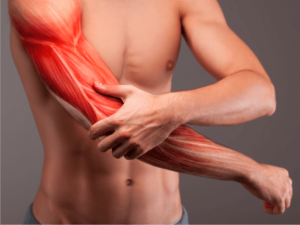Constipation affects many people. It is not classified as a disease, but as a condition that requires attention. It occurs when the body absorbs more water than normal, or food moves too slowly inside the intestinal tract, causing the intestines to be full and the need to evacuate. However, after going to the toilet and despite much effort people with constipation fail to push stool to the rectum; dry and hardened stools make the action slow and painful. This condition can be defined as the low frequency of stool evacuation.
The difficulty to defecate sometimes does not imply a more severe condition. It occur through not eating a healthy diet, taking little fluid or lack of exercise. Consuming foods high in fiber, taking large amounts of fluids and practicing routine exercises can prevent it and offer constipation relief.
Although constipation is not a disease, it is vital to pay attention to it; the problem can become aggravated when it becomes chronic constipation. The condition is constant for prolonged periods, causing severe pain, presenting blood in the stool, with fewer and increasingly difficult evacuations. Then it is essential to visit a doctor for treatment to avoid damage to the intestines and anus. It is also necessary to determine the cause, which in a worst-case scenario could be a symptom of tumors or intestinal obstructions.
Recognising Constipation
Each person’s body reacts in different ways to different stimuli, so most people experience this condition at varying levels of severity at some point in their lives. There is no specific number of times required to go to the bathroom but a person who evacuates daily enjoys greater health.
Constipation afflicts many people, but it is often not talked about due to shame. According to the National Digestive Diseases Information Clearinghouse (NDDIC), more than four million Americans suffer from frequent constipation.
Changes in bowel habits are normal; some people defecate daily, while others do very little, once or twice a week, and with much effort. In some cases, people fear to evacuate because of pain, causing constipation to be more severe. Although toileting habits vary, people who take more than three days to go and find it difficult are most likely suffering from constipation.
The most common constipation symptoms are:
- Fewer than three bowel movements a week.
- Great difficulty.
- Stools are hard and dry.
- The bowel movement process is painful, and stools are difficult to expel.
- Hard stools tear the anus and there is slight bleeding.
- Colic pain.
- Intestines are full and inflamed.
- Nausea and vomiting.
- Loss of appetite, feeling full, flatulence.
After months of presenting symptoms, the diagnosis is constipation.
Constipation can be Dangerous
People enjoy eating, but it is essential to take care of diet. Foods rich in sugars and starch can cause constipation; although there are medical conditions such as thyroid problems, diabetes, irritable bowel syndrome, tumors and pregnancy that can cause constipation.
Medications such as antidepressants, strong painkillers and antihistamines can lead to constipation. Many external and internal factors affect the mobility of stool inside the intestine, which can lead to an increased risk of developing constipation.
Constipation can result in severe complications such as:
- Irritable colon. The colon can be stretched by the retention of large amounts of excrement, causing irritability of the mucous membranes.
- Tears or fissures in the lining of the anus. These are caused by hard and dry stools.
- Rectal prolapse. Great exertion while trying to eliminate hard stools can cause the intestines to protrude through the anus, resulting in the need for surgery.
- Vaginal prolapse. The colon, being very loaded, presses on the female reproductive organs, pushing the vagina and producing a vaginal prolapse.
- Vesicoureteral reflux. Due to vaginal prolapse, the bladder retains urine, which causes a reflux of urine from the bladder to the kidneys, producing chronic infection.
As stated by the NDDIC, constipation is a widespread gastrointestinal problem that can result in serious complications and should be treated quickly.
Foods and Home Remedies for Constipation Relief
If bowel movement is not frequent, it is best to quickly address the situation before it develops into chronic constipation and the need for extreme measures such as the use of suppositories, enemas or laxatives. The intestines can become accustomed to such constipation treatments and may affect regularity.
The best solution is a healthy diet. It is important to know which foods help to prevent and improve this condition. It is an alternative and natural solution, economical and practical.
Processed foods are harmful to people suffering from constipation because they are low in fiber, raise blood sugar levels and feed harmful intestinal bacteria. Just making a change from eating these foods to fresh foods has a significant impact on constipation treatment.
Properties that Help Fight Constipation
Specialists say that low intake of water, magnesium and fiber favors the presence of constipation. According to the National Institutes of Health (NIH) in the United States, magnesium helps muscles and nerves work correctly, strengthens the immune system and keeps the heart and bones healthy. It also has the ability to increase water in the intestines, promoting movement and softening stool. To provide the body with these benefits, the Cedars-Sinai Medical Center recommends consuming 400 milligrams of magnesium a day.
All plant-based foods offer both soluble and insoluble fiber. When suffering from constipation, it is advisable to consume those with higher levels of insoluble fiber; it does not dissolve in water, adding more volume to the stool so that it passes through the intestines more easily. Insoluble fiber is found in whole grains such as barley, brown rice, whole wheat, nuts and seeds, the skin of fruits and vegetables, and leafy green vegetables such as kale.
Foods to Help with Constipation
- Leafy green vegetables such as spinach, chard and kale contain fiber, magnesium and water.
- Avocado contains magnesium.
- Yogurt has beneficial bacteria.
- Prunes are high in fiber.
- Radishes help to relax the intestinal muscles.
- Ground flaxseed is high in fiber.
- Beans are rich in fiber and magnesium
- Cocoa contains magnesium.
- Olive oil softens stool.
- Aloe vera acts as a natural laxative.
- Castor oil works as a natural laxative.
Home Remedies
Home remedies for constipation can be used as a complementary measure. They are easy to prepare and very effective.
- Aloe vera juice. Drinking a glass of aloe vera juice every morning helps the digestive system to move stools and cleanse the colon.
- Oatmeal. Eating this cereal every morning or, at night, a glass with oat flakes mixed with milk, orange juice or yogurt is another option. It can also be added to smoothies, soups and salads.
- Flaxseed. Put three tablespoons of flaxseeds in a glass of water and let it sit overnight. Drink it the next morning.
Adding these three home remedies to your daily diet will soon lead to constipation relief, improving quality of life and avoiding possible complications.











